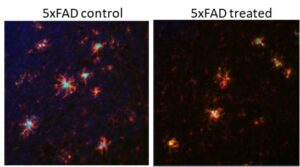Sleep
Sleep disorders encompass various sleep-wake problems that can disrupt the quality, timing, and duration of sleep, leading to impaired functioning. These prevalent disorders affect approximately 30% of adults and have profound effects on overall health. The currently available common sleep medications often come with undesirable mental and physical side effects, prompting the search for alternative therapeutic options with fewer adverse outcomes. In our research, we focus on the endocannabinoid system (eCBS), a complex network that plays a vital role in regulating a wide range of behaviors and physiological processes, including circadian rhythmicity and sleep. In joint efforts with Prof. Asya Rolls’s lab, our current work centers around understanding the functional role of the eCBS in sleep regulation and circadian processes, and also in identifying cannabis compounds that affect the sleep-wake cycle and deciphering their influence on sleep architecture.
Epilepsy
Epilepsy is characterized by episodes of disturbed brain activity that result in recurrent seizures. While treatments aim to reduce seizure intensity and frequency, approximately one-third of epilepsy patients do not respond well to traditional antiepileptic medications. In recent years, high-cannabidiol (CBD) cannabis chemovars have shown promise in treating certain types of treatment-resistant epileptic seizures. However, physicians often prescribe cannabis based solely on their CBD content, without taking into account the significance of other compounds present in each chemovar. We have previously highlighted the importance of comprehensive phytocannabinoid analysis by showing several equally high-CBD cannabis extracts failed to produce the same anticonvulsant effects. We are currently using models of behavioral and neuronal activity to study the antiepileptic potential of metabolites from several plants such as cannabis and iboga and from the fungi A. muscaria.
Alzheimer's disease
A major hallmark of Alzheimer's disease is the aggregation and accumulation of amyloid-β peptides in plaques. Ordinarily, these amyloid-β plaques are cleared by microglia cells through theprocess of phagocytosis. However, during the progression of the disease, these cells lose their ability to efficiently clear the harmful plaques. Microglia cells were found to express different receptors of the endocannabinoid system, suggesting a potential link between cannabis metabolites and microglial function. Therefore, in our research, we are investigating the potential of specific metabolites derived from the cannabis plant in stimulating microglial phagocytosis of amyloid-β.

